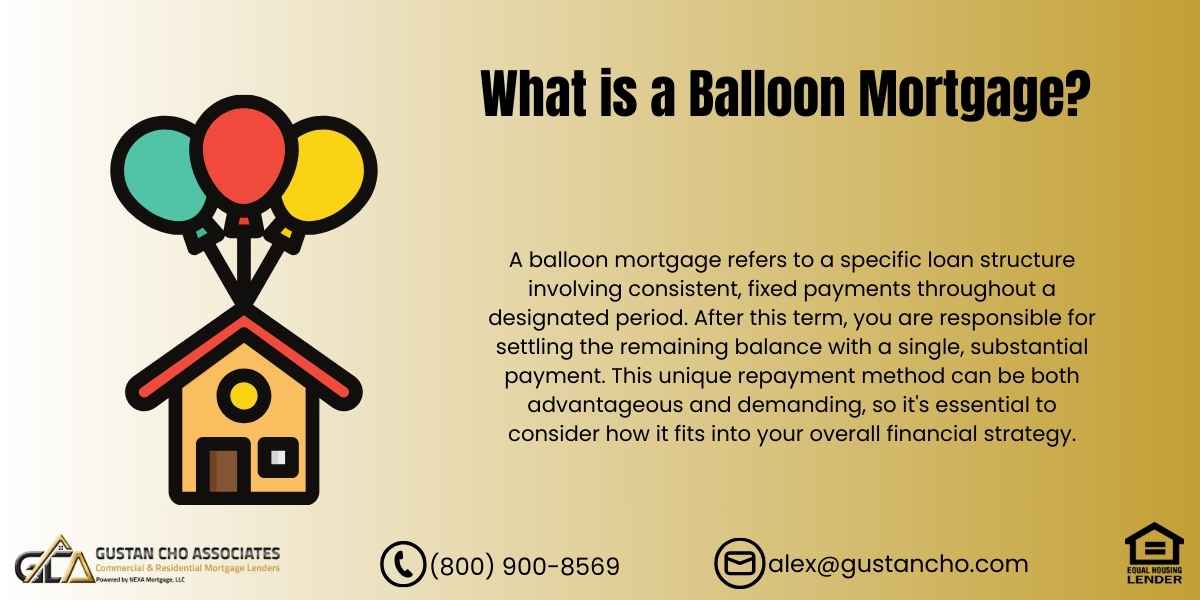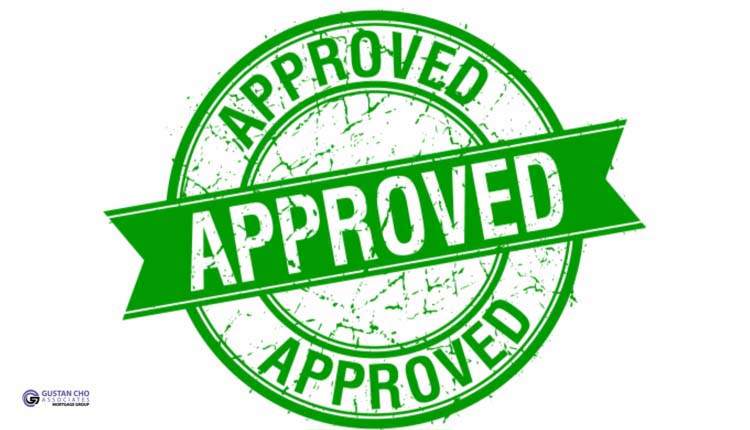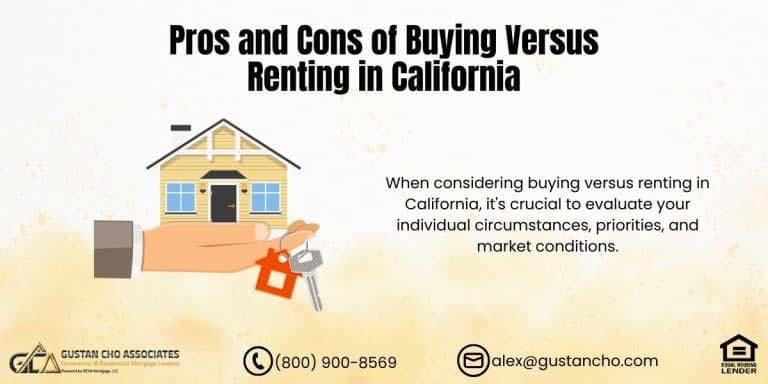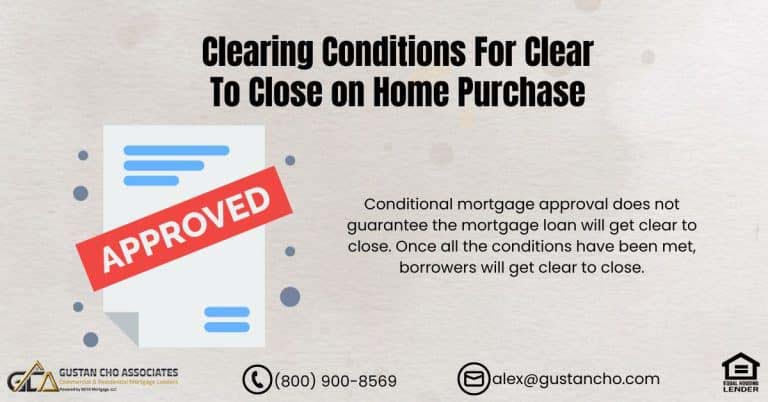Understanding Balloon Mortgages: A Strategic Guide for 2024
In this article, we will discuss and cover balloon mortgages and how they work. Balloon mortgages are short-term loans with fixed monthly payments, usually based on a 30-year fully amortizing schedule. Balloon loans are for commercial loans only and do not apply to residential mortgages.
After the 2008 housing meltdown and subprime mortgage collapse, federal regulators banned balloon mortgages for owner-occupant homes. It is only available for investment properties and commercial loans. In this article, we will cover and discuss how balloon mortgage work.
In this section, we will cover how balloon-term loans work. Normally mortgage loans are amortized over 30 years. Balloon mortgages only apply to commercial mortgages. Only good for 3, 5, 7, or 10 years. After the term is up, the whole balance of the loan is due. Up to the commercial lender whether they are going to renew the loan or not.
Introduction to Balloon Mortgages
In real estate financing, it’s important to know about different mortgage options because they can affect your investment choices. One option that some people might not fully understand is balloon mortgages. With this type of loan, you make regular, fixed payments for a certain amount of time. Then, at the end of the loan, you have to pay a big lump sum. This can be tricky, but it might work well for some investors under the right circumstances.
Balloon mortgages are mostly used in commercial real estate but can still benefit the right borrowers. For example, if you plan to sell a property before the balloon payment comes due, this loan could help you manage cash flow better when you own the property.
Understanding how balloon mortgages work can give you an edge when making investment decisions, making it a valuable option to consider.
Start Your Process Towards Balloon Mortgages
Apply Online And Get recommendations From Loan Experts
Detailed Overview of Balloon Mortgages
Balloon mortgages are structured differently from more traditional home loans. Typically, these mortgages are based on a 30-year amortization schedule, but unlike standard loans, they don’t fully amortize over their term. Mortgage options with shorter terms—typically 5, 7, or 10 years—require a substantial final payment at the end of the term. This significant sum called the “balloon payment,” is notably larger than the earlier monthly installments you’ve been making. It’s important to plan for this payment. Doing so will help you meet your financial obligations when the time comes.
How Balloon Mortgages Work
When you’re gearing up to finance a commercial property for renovation and resale, considering a balloon mortgage might be a smart move. This type of mortgage initially presents lower monthly payments, which could greatly enhance your cash flow and allow you to boost the property’s value over time. As the loan term concludes and you sell the property, you can allocate a portion of the sales proceeds to manage the balloon payment.
Ultimately, this arrangement significantly eases your monthly financial obligations, granting you both flexibility and the chance for substantial profit.
Benefits for Real Estate Investors
The primary advantage of using a balloon mortgage lies in the significantly reduced monthly payments during the loan’s term. For real estate investors, this aspect is particularly appealing as it allows for enhanced cash flow management—critical when funds might be needed for property improvements or other investments. Furthermore, balloon mortgages can be less costly in terms of interest payments than longer-term, fully amortizing loans if the loan is paid off before or at the balloon payment.
Refinancing Options
As the balloon term concludes, borrowers face multiple choices. If selling the property isn’t a practical option, converting the balloon payment into a new mortgage can be an effective strategy. This decision often relies on the borrower’s credit standing and the property’s market value when refinancing takes place. Gustan Cho Associates specializes in guiding borrowers through this intricate process so they can fully comprehend their alternatives and the consequences tied to each choice.
Risks and Considerations
The major risk associated with balloon mortgages comes from the uncertainty of future financial conditions. If property values decline or refinancing options are unfavorable due to a worsened credit situation or rising interest rates, borrowers may be unable to cover the balloon payment. This could lead to financial strain or, worst case, property loss through foreclosure.
Adjustable Rate Mortgages (ARMs) as an Alternative
Adjustable Rate Mortgages (ARMs) present a viable alternative for individuals wary of balloon payments. Typically, ARMs feature a fixed interest rate during an initial period—whether it be 3, 5, 7, or even 10 years. After this introductory phase, the interest rate adjusts based on market trends.
This arrangement offers initial stability akin to balloon mortgages and grants the flexibility to respond to fluctuating rates over time. With ARMs, you have the reassurance of a predictable start while enjoying the adaptability needed for future financial planning.
Regulatory Considerations in 2024
It’s important to note that regulatory environments influence the availability and terms of balloon mortgages. Following the financial upheavals of the past, regulations have tightened to protect consumers from risky loan products. In 2024, while balloon mortgages remain viable for commercial investors, they are less common in residential settings. Prospective borrowers should consult with financial experts at Gustan Cho Associates to navigate these waters effectively.
Success Stories
Consider the example of a real estate developer who used a balloon mortgage to purchase a downtown property. By maintaining low monthly payments, the developer was able to allocate funds to substantial renovations that significantly increased the property’s market value. Before the balloon payment came due, the property was sold at a considerable profit, showcasing the effective use of this financing strategy.
Start Your Process Towards Buying A Home
Apply Online And Get recommendations From Loan Experts
Why Choose Gustan Cho Associates?
Selecting the ideal mortgage goes beyond simply securing a low interest rate; it demands thoughtful collaboration with professionals who grasp the complexities of the real estate landscape and the unique requirements of investors. At Gustan Cho Associates, we provide tailored mortgage solutions, offering essential insights on options like balloon mortgages. Our goal is to equip clients with the knowledge they need to make financial decisions that are not only beneficial but also profitable.
Conclusion
Balloon mortgages can serve as a potent tool in the arsenal of commercial real estate investors, offering low initial payments and flexible terms. However, the key to successfully leveraging this type of mortgage lies in careful planning and expert guidance. By partnering with Gustan Cho Associates, borrowers can navigate the complexities of balloon mortgages with confidence, ensuring their investment decisions are robust and yield high returns in the volatile real estate market of 2024.
Get Started Today
Are you considering a balloon mortgage, or do you need more information on how it can fit into your investment strategy? Call or text Gustan Cho Associates today at 800-900-8569 or email alex@gustancho.com to explore your options and secure the best terms for your real estate financing needs.
Frequently Asked Questions About Balloon Mortgages:
Q: What is a Balloon Mortgage?
A: A balloon mortgage refers to a specific loan structure involving consistent, fixed payments throughout a designated period. After this term, you are responsible for settling the remaining balance with a single, substantial payment. This unique repayment method can be both advantageous and demanding, so it’s essential to consider how it fits into your overall financial strategy.
Q: Why Would I Choose a Balloon Mortgage?
A: Balloon mortgages may be an excellent option for you if you anticipate selling the property prior to the balloon payment’s due date or if you foresee having adequate funds to cover the sizable payment, perhaps by refinancing.
Q: Are Balloon Mortgages Available for Residential Properties?
A: No, after regulatory changes after 2008, they are generally unavailable for owner-occupied homes. However, they are still used for commercial properties and investments.
Q: What Happens at the End of the Term of a Balloon Mortgage?
A: When a balloon mortgage reaches maturity, the remaining balance must be settled. You have several options to manage this situation effectively: consider selling the property, refinancing the loan, or utilizing other assets to meet the payment obligation. Each option has its implications, so evaluating them carefully is essential to make the best decision for your financial circumstances.
Q: What are the Risks of a Balloon Mortgage?
A: The main risk is being unable to make the balloon payment if financial conditions change, such as a drop in property value or an increase in interest rates, which might make refinancing unfavorable.
Q: How Can I Manage the Risk of a Balloon Payment?
A: Planning is crucial. Consider your ability to refinance, the potential property value at the time of the balloon payment, and have a backup plan, like additional savings or other assets.
Q: Can I Refinance a Balloon Mortgage?
A: Yes, refinancing is a common strategy to manage the balloon payment. However, your ability to refinance will depend on your credit standing, the property’s value, and market conditions.
Q: What Should I do if I Can’t Afford the Balloon Payment?
A: Contact your lender as soon as possible. You might be able to arrange refinancing or extend the loan term. Selling the property is another option to consider.
Q: How do Balloon Mortgages Compare to Adjustable-Rate Mortgages (ARMs)?
A: Both initially offer lower payments. However, ARMs adjust the interest rate over time, which can increase or decrease your payments. In contrast, balloon mortgages require a one-time large payment at the end of the term.
Q: Why Should I Consult Gustan Cho Associates About Balloon Mortgages?
A: Gustan Cho Associates specializes in commercial and investment mortgage solutions, including balloon mortgages. Consulting with our experts can help you navigate the complexities of these loans and align them with your investment strategies.
This blog about “Balloon Mortgages | What is a Balloon Mortgage Payment” was updated on January 3rd, 2025.










